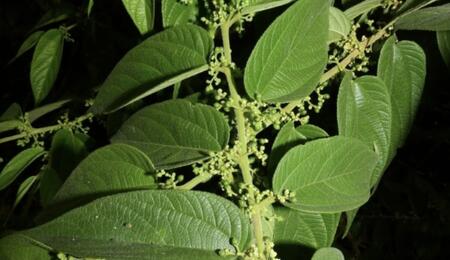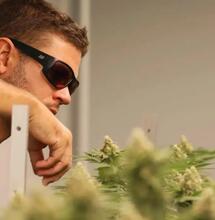Brazilian Plant Found to Contain Cannabinoids

Brazillian Researchers have discovered cannabinoids in a plant that was previously considered a simple weed: Trema micrantha. This plant has surprised the scientific community by containing several cannabinoids, including high concentrations of cannabidiol (CBD). Additionally, it contains lower levels of THC's acidic precursor, THCA, as well as THC itself.
Trema is a well-known plant in Brazil and throughout South America. A research team in Rio de Janeiro isolated cannabinoids from the plant, finding that CBD is the most abundant, but it is not the only cannabinoid present.
The quantification of cannabinoids revealed the presence of these compounds even at very low concentrations, according to the research team led by Rayssa Ribeiro from the Federal University of Rio de Janeiro.
“All the studied cannabinoids were identified in the leaves, fruits, and inflorescences of Trema micrantha, except in the stems. The acidic forms (CBDA and THCA) were found in higher concentrations in the fruits, inflorescences, and leaves,” the research group concluded.
What Cannabinoids Were Found in Trema?
Both CBD and THC were detected in the fruits and flowers of the shrub. Researchers suggest that Trema could provide a more affordable and less legally complex source for extracting cannabidiol.
Trema grows extensively across Brazil and in several other South American countries. It is commonly used for reforestation due to its rapid growth and is also valued in traditional medicine for its analgesic properties and effectiveness in treating skin rashes.
**Ongoing Research on Trema micrantha and Its Cannabinoids**
Researchers at the University of Rio de Janeiro have secured $104,000 to continue their research, focusing primarily on refining extraction methods, studying the chemical profiles of the cannabinoids, and assessing the safety of CBD and other compounds extracted from Trema.
With each new discovery, there is hope that Brazil can capitalize on this finding. If this ubiquitous plant in the Americas can fully realize its potential, it may transform the CBD market and increase access. However, much work remains to be done.
More From Soft Secrets:



